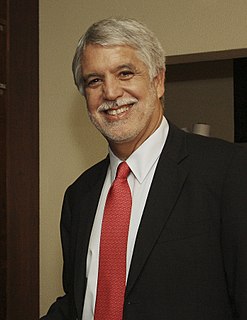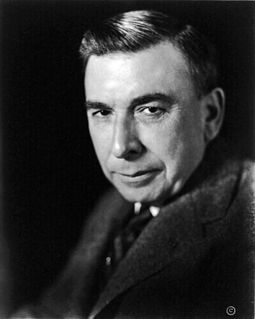A Quote by Jane Jacobs
Automobiles are often conveniently tagged as the villains responsible for the ills of cities and the disappointments and futilities of city planning. But the destructive effect of automobiles are much less a cause than a symptom of our incompetence at city building.
Related Quotes
...our cities of the present lack the outstanding symbol of national community which, we must therefore not be surprised to find, sees no symbol of itself in the cities. The inevitable result is a desolation whose practical effect is the total indifference of the big-city dweller to the destiny of his city.
What if we fail to stop the erosion of cities by automobiles? ... In that case America will hardly need to ponder a mystery that has troubled men for millennia. What is the purpose of life? For us, the answer will be clear, established and for all practical purposes indisputable. The purpose of life is to produce and consume automobiles.
We had to build a city not for businesses or automobiles, but for children and thus for people. Instead of building highways, we restricted car use. We invested in high-quality sidewalks, pedestrian streets, parks, bicycle paths, libraries; we got rid of thousands of cluttering commercial signs and planted trees. All our everyday efforts have one objective: Happiness.
I don't think that you can dispose of the constructive and inventive things that America is doing - and say, "Oh we aren't doing anything anymore and we are living off of what the poor Chinese do." It is more complicated than that. There is the example of Detroit which was once a very prosperous and diverse city. And look what happened when it just specialized on automobiles. Look at Manchester when it specialized in those dark satanic mills, when it specialized in textiles. It was supposed to be the city of the future.
In Bogotá, our goal was to make a city for all the children. The measure of a good city is one where a child on a tricycle or bicycle can safely go anywhere. If a city is good for children, it will be good for everybody else. Over the last 80 years we have been making cities much more for cars' mobility than for children’s happiness.
Let the people walk. Or ride horses, bicycles, mules, wild pigs-anything-but keep the automobiles and the motorcycles and all their motorized relatives out. We have agreed not to drive our automobiles into cathedrals, concert halls, art museums, legislative assemblies, private bedrooms and other sanctums of our culture; we should treat our national parks with the same deference, for they, too, are holy places.
I'm not so sure he's wrong about automobiles," he said, "With all their speed forward they may be a step backward for civilization-that is, spiritual civilization ... But automobiles have come, and they bring a greater change in our life than most of us expect. They are here, and almost all outward things are going to be different because of what they bring. They are going to alter war, and they are going to alter peace.
American cities are like badger holes, ringed with trash--all of them--surrounded by piles of wrecked and rusting automobiles, and almost smothered in rubbish. Everything we use comes in boxes, cartons, bins, the so-called packaging we love so much. The mountain of things we throw away are much greater than the things we use.

































